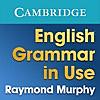英語学習: BBC Learning English を活用しよう![文法:6 Minutes Grammar] Question Forms(質問形式)について
![]() 今回はBBC Learning Englishの Lower-intermediate コースから、Question Forms(質問形式)に関するトピックを紹介します。
今回はBBC Learning Englishの Lower-intermediate コースから、Question Forms(質問形式)に関するトピックを紹介します。
非常に基本的な文法ルールですが、初めて英語で英語を学ぶ方には良い教材だと思います。
BBC Learning Englishを継続して学んでいけば、高い英語力を身に付けることができるでしょう。
無料ですから気軽に始めてみてください。
■関連ページ
こちらは Lower-intermediateコースのUnit 1の内容です。
Unit1のSession1では、6 Minutes Grammarの概要と、Question Forms(疑問形式)について学びます。
| Yes/No Questions
Be動詞、または助動詞から始まる質問の形で、YesまたはNoで答えることができます。

| Wh Questions
Wh疑問詞(Who, What, Why, When, Where, How)で始まる疑問の形で、問われている内容について具体的に答える必要があります。

では、BBC Learning English のワークを体験してみましょう。
英語で書かれている解説にも慣れて行きましょう。
Session Grammar
In English, there are two basic types of question.1. Yes/no questions often begin with the verb to be, but can also begin with other auxiliary verbs, such as do.
We ask these when we want a yes or no answer.
2. Wh-questions start with a question word, such as who, what, where, when, why or how.
We ask this type of question when we want different kinds of information. These questions cannot be answered with a yes or no.
BBCは英国のサービスですので、解説もこのように全て英語で書かれてます。
例えば「auxiliary verb」は助動詞のことですね。
このように英語の文法用語も学べる点が素晴らしい!
次に実際に「6 Minutes grammar」を聞いてみましょう
■オーディオ教材
6 Minute Grammar: Question Forms
どうですか? 聴き取れましたか?
今回の「6 Minutes Grammar」はNeilとSophieがQuestion Forms(疑問形式)について話しています。
以下、ダイアログのスクリプトです。
Neil
Hello. Welcome to 6 Minute Grammar with me, Neil.Sophie
And me, Sophie. Hello.Neil
Today’s programme is all about questions.Sophie
Yes: we’ll take a look at different types of yes-no questions…Neil
We’ll hear lots of w-h questions…Sophie
And we’ll be using the questions to get to know each other a little bit better.Neil
So if you want a reminder of English question forms…Sophie
Or if you’re studying them for the first time…Neil
Keep listening, and join in with the task we’ll be giving you later on.Sophie
So let’s get started. In English, there are two basic question types: yes/no questions and w-h questions.Neil
And here’s Finn with our first yes/no question:Finn
Can you speak English? Can you speak English?Neil
Yes I can, thanks Finn. That’s a useful first question.Sophie
Yes, and it’s made with the auxiliary verb can, plus the subject you and a verb: speak.Can you speak? Can you speak English Neil?Neil
Yes, I can.Another question please Finn?Finn
Do you work every day? Do you work every day?Sophie
Auxiliary do, subject you, verb work. Do you work every day, Neil?Neil
I don't, no. I don't work at weekends. Finn?Finn
Do you have any brothers or sisters?Sophie
Auxiliary do, subject you, verb: have. Neil, do you have any brothers or sisters?Neil
Yes I do: I've got one sister. Now another way to make yes-no questions is with the verb to be plus a subject. Let’s demonstrate. Sophie: Are you married?Sophie
No, Neil, I’m not. Is your boss married?Neil
My boss? No, he isn't. Were you in the office yesterday?Sophie
Yes, sadly I was in the office yesterday.IDENT
You’re listening to BBC Learning English.Neil
And we're talking about question forms.Sophie
Now, the second main type of question in English starts with either what, where, when, which, why, who, or the odd one out:Neil
… how.Sophie
So let’s try making a question with where. We add an auxiliary…Neil
… such as doSophie
… then we can add a subject plus a verb. For example: Neil, Where do you live? Where do you live?Neil
I live in south London. Where do you live, Sophie?Sophie
I live in north London. Now let’s change the question word and the verb. Which languages do you speak?Neil
And here we add a noun to which: Which languages do you speak?Sophie
Just English. And with a different auxiliary: Which languages can you speak?Neil
We can add nouns to some of the other question words: What time do you start work?Sophie
About 9 o'clock in the morning. And if we ask 'What time is it?' we’re making a w-h question with the verb to be. I can ask: Where were you born?Neil
I was born in England. When is your birthday?Sophie
In September. What is your work address?Neil
It's W1A. Lots of useful questions with to be there. Now for a very personal question with to be: Sophie, How old are you?Sophie
You should never ask a woman her age! And for questions with how, we usually add an extra word. To ask about age it’s:Finn
How old…Sophie
For price it’s:Finn
How much…Neil
For size we ask:Finn
How big…Sophie
And for height it’sFinn
How tall.Sophie
How tall are you, Neil?Neil
About 180cm. And of course, you can’t answer a w-h question with yes or no. How tall are you, Sophie?Sophie
I think we're actually the same height.Neil
Let me see, back to back… No, I'm taller! Is it time for a practice task Sophie?Sophie
Yes, it is. Join in at home if you like. I’m going to give you a topic to ask me about, and you have to make one yes/no question and one w-h question. And Neil will give some possible answers. Here’s the first topic: Ask me about my age.Neil
Ok, so you could ask: How old are you? When were you born?Sophie
Now ask me about my home.Neil
Do you live with your family? What is your address?Sophie
Now ask me about my work.Neil
Do you work near here? How much do you earn?Sophie
Thanks Neil. And well done to you at home if you joined in with the task.Neil
So that’s a look at some basic question types we can use when we’re getting to know people. We had yes/no questions,Sophie
And we looked at questions starting with w-h words.Neil
And we found out some interesting information about each other. I didn’t know how tall you were, Sophie!Sophie
I know, it's quite incredible really. And there’s lots more about questions forms on our website at bbclearningenglish.com. Join us again for more 6 Minute Grammar.All
Bye.
いかがでしたか?
基礎的な疑問形式や疑問詞に関する講義ですが、英語で英語を学ぶと少しハードルが高く感じたのではないでしょうか。
しかし、日本語で学ぶのとは段違いに触れる英語の量も多くなるので、英語習得という点では大変メリットがあるのです。
|英文法を英語で学ぶ参考書
BBC Learning Englishは膨大な数の学習コースをこなしていくので、やり遂げればかなりの英語力アップが期待できます。
しかし、もっと文法を体系だってしっかり学びたい方は、『English Grammar in Use』という参考書がオススメです。
こちらは、問題集も兼ねているので理解度をしっかり確認できます。
『English Grammar in Use』はアプリ版もあります。
アプリ版には例題の音声が入っていますし、理解度確認クイズはよりインタラクティブなものになっています。
『English Grammar in Use』については、こちらの記事でも詳しく解説していますので参考にして下さい。
|英会話交流会参加者募集中!
異業種交流会「紺碧会(英語)」「青風会(日本語)」参加者募集中です!
実際に英会話すると英語の習得速度が加速しますよ。


